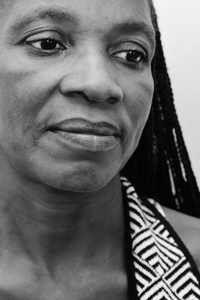Latest News Archive
Please select Category, Year, and then Month to display items
23 April 2020
|
Story Cornelius Hagenmeier
|
Photo Pixabay

The iKudu project, which is an European Union-funded Capacity Building in Higher Education (CBHE) project, has recently launched its blog, which aims to amplify the diverse voices of all iKudu stakeholders. In this space, members of the iKudu team will regularly share their views on the project and related international education topics.
The iKudu project focuses on developing a contextualised South African concept of Internationalisation of the Curriculum (IoC), which integrates Cooperative Online International Learning (COIL) virtual exchanges. The project was launched by the UFS in 2019, together with nine European and South African partner universities. It is funded by the European Union’s Erasmus+ programme with EUR999 881 (approximately R20 million) and is implemented over a three-year period.
The iKudu project is based on the fundamental belief that it is necessary to rethink internationalisation in an uncertain world. First, it is crucial to recognise and transform the power dynamics underlying international academic collaboration. Second, it is essential to develop pedagogies that allow every student to participate in international education, integrating technology where appropriate.
However, while all stakeholders agree on the fundamental tenets of the project and its principal goals, all iKudu stakeholders contribute different perspectives. In the blog, the iKudu stakeholders will provide a space for intellectual discourse on the project and related international education topics, which will allow constructive and critical engagement.
The link to the blog can be found at: https://www.ufs.ac.za/ikudu/ikudu-blogs/Transforming-Curricula-through-Internationalisation-and-Virtual-Exchanges
Mekondjo! National exhibition to reveal the courage, determination, repression and torture of PLAN
2014-05-21
|

Angelina Angula ex PLAN soldier injured during the 1978 Cassinga attack - photo by John Liebenberg. |
A pioneering exhibition by John Liebenberg and Christo Doherty is about to open on the Bloemfontein Campus. ‘Mekondjo! born in the struggle for Namibia’ gives South Africans their first insight into the lives of the men and women who fought against the SADF in the bush of Northern Namibia and Angola from 1966 – 1989.
This public exhibition presents eleven portraits of People’s Liberation Army veterans in the process of speaking about and coming to terms with their very different experiences in the Namibian War of Liberation.
When the People’s Liberation Army (PLAN) returned to Namibia after the UN-supervised elections of 1989, it had been fighting against South African rule for 23 years. Formed in 1966 as the armed wing of the South West African Peoples’ Organisation, PLAN had developed from a handful of poorly armed guerrillas to a sophisticated mechanised force. These soldiers fought alongside Angolan, Russian and Cuban soldiers against the SADF and UNITA. Since SWAPO’s election victory, the new government has mythologised the heroism of the armed struggle. The stories of the individual PLAN fighters’ experiences are only now being articulated, though.
Their stories are of great courage and determination against often impossible odds; but also of repression, torture, and disastrous decisions by the PLAN leadership.
The exhibition will be on display from Thursday 22 May to Friday 23 May for the duration of the Silence after Violence conference. The conference is hosted by the UFS Institute for Reconciliation and Social Justice and the Center for Holocaust Studies at the University of Vermont.
Date: Thursday 22 May and Friday 23 May 2014
Place: Centenary Complex, Reitz Hall, Bloemfontein Campus
Exhibition Introduction: Thursday 22 May, 14:00 – 15:30
Other viewing times: intermissions during the Silence after Violence programme
The public is welcome to attend.
* Spotlight photo: PLAN commissioner Nkrumah Mushelenga, Windhoek 2013 – photo by John Liebenberg